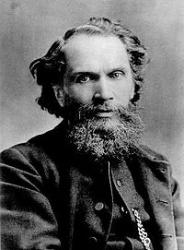Planning worship?
Check out our sister site, ZeteoSearch.org,
for 20+ additional resources related to your search.
- |
User Links
Search Results
Now let us see thy beauty, Lord
Author: B. Waugh Appears in 13 hymnals Used With Tune: DUNDEE
Now let us see thy beauty, Lord
Now Let Us See Thy Beauty, Lord
Author: Benjamin Waugh, 1839-1908 Hymnal: The Cyber Hymnal #8281 Meter: 8.6.8.6 Lyrics: 1 Now let us see Thy beauty, Lord,
As we have seen before;
And by Thy beauty quicken us
To love Thee and adore.
2 ’Tis easy when with simple mind
Thy loveliness we see,
To consecrate ourselves afresh
To duty and to Thee.
3 Our every feverish mood is cooled,
And gone is every load,
When we can lose the love of self,
And find the love of God.
4 ’Tis by Thy loveliness we’re won
To home and Thee again,
And as we are Thy children true
We are more truly men.
5 Lord, it is coming to ourselves
When thus we come to Thee;
The bondage of Thy loveliness
Is perfect liberty.
6 So now we come to ask again,
What Thou hast often giv’n,
The vision of that loveliness
Which is the life of Heav’n. Languages: English Tune Title: ST. HUGH
Now Let Us See Thy Beauty, Lord
Now let us see thy beauty, Lord
Author: Benjamin Waugh Hymnal: Hymns and Psalms #534 (1983) Languages: English Tune Title: EDGWARE
Now let us see thy beauty, Lord
Now let us see Thy beauty, Lord
Author: Rev. B. Waugh Hymnal: Hymnal, Amore Dei. Rev. ed. #a251 (1903) Languages: English
Now let us see Thy beauty, Lord
Anonymous
Person Name: Unknown Composer of "EDGWARE" in The Methodist Hymn-Book with Tunes In some hymnals, the editors noted that a hymn's author is unknown to them, and so this artificial "person" entry is used to reflect that fact. Obviously, the hymns attributed to "Author Unknown" "Unknown" or "Anonymous" could have been written by many people over a span of many centuries.
Anonymous
E. J. Hopkins

1818 - 1901 Person Name: Edward John Hopkins Composer of "ST. HUGH" in The Cyber Hymnal Dr Edward John Hopkins MusDoc United Kingdom 1818-1901. Born at Westminster, England, the son of a clarinetist with the Royal Opera House orchestra, he became an organist (as did two of his brothers) and a composer. In 1826 he became a chorister of the Chapel Royal and sang at the coronation of King William IV in Westminster Abbey. He also sang in the choir of St. Paul’s Cathedral, a double schedule requiring skill and dexterity. On Sunday evenings he would play the outgoing voluntary at St. Martin’s in-the-field. He left Chapel Royal in 1834 and started studying organ construction at two organ factories. He took an appointment at Mitcham Church as organist at age 16, winning an audition against other organists. Four years later he became organist at the Church of St. Peter, Islington. In 1841 he became organist at St. Luke’s, Berwick St., Soho. Two Years later he was organist at Temple Church, which had a historic organ (built in 1683). He held this position for 55 years. In 1845 he married Sarah Lovett, and they had four sons and five daughters. He was closely associated with the Bach Society and was organist for the first English performances of Bach’s St. Matthew Passion. In 1855 he collaborated with Edward Rimbault publishing “The organ, its history and construction” (3 editions 1855-70-77). In 1864 he was one of the founders of the “College of organists”. In 1882 he received an honorary Doctorate of Music from the Archbishop of Canterbury. He composed 30+ hymn tunes and some psalm chants, used by the Church of England. He died in London, England.
John Perry
E. J. Hopkins
Benjamin Waugh

1839 - 1908 Person Name: B. Waugh Author of "Now let us see thy beauty, Lord" in Isles of Shoals Hymn Book and Candle Light Service Waugh, Benjamin, was born at Settle, in Yorkshire, Feb. 20, 1839, and educated for the Congregational Ministry at Airedale College, Bradford. He has held pastorates at Newbury, Berkshire, Greenwich, and New Southgate. He has been for several years editor of The Sunday Magazine, and a large contributor to its pages. He has published (1) The Goal Cradle, Who rocks it; (2) Sunday Evenings with my Children; (3) The Children's Sunday Hour; (4) The Child of the English Savage; (5) Imperial Legislation and Street Children. Mr. Waugh's hymns have appeared from time to time in The Sunday Magazine, and have not been separately published. Those which have come into common use include:—
1. Jesus, the Friend of friendless men. Jesus the Sinner's Friend. 1874.
2. 0 happy pair of Nazareth. The Child Jesus.
3. O let me see Thy beauty. Lord. The Beauty of the Lord. This is given in a revised form as “Now let us see Thy beauty, Lord," in Horder's Congregational Hymns, 1884.
Mr. Waugh's hymns are for children's use, and are exceedingly fresh and unconventional. Several others of merit might be selected from the Sunday Magazine with advantage to children's hymnody. [Rev. W. Garrett Horder]
-- John Julian, Dictionary of Hymnology (1907)
=================
Waugh, B., p. 1241, ii. He has published a collection of 93 original Hymns for Children, 1892. Nos. 1, 3 of those noted here are in the Sunday School Hymnary, 1905; No. 2 is in Worship Song, 1905.
1. Heavenly Father, I would serve Thee. [Childlike Service.] Written 1890; 1892, as above, p. 64.
2. I'll come to Thee, 0 Jesus Christ, [Following
Jesus.] Written 1879; first published in the Sunday Magazine in 1882.
3. Where is Jesus, little children. [Jesus ever present.) Written 1890; 1892, p. 54; also in School Hymns, 1891, No. 422.
Mr. Waugh's work at p. 1241, ii., as The Good Cradle, &c, should be The Goal Cradle, &c. [Rev. James Mearns, M.A.]
--John Julian, Dictionary of Hymnology, New Supplement (1907)
Benjamin Waugh


 My Starred Hymns
My Starred Hymns


